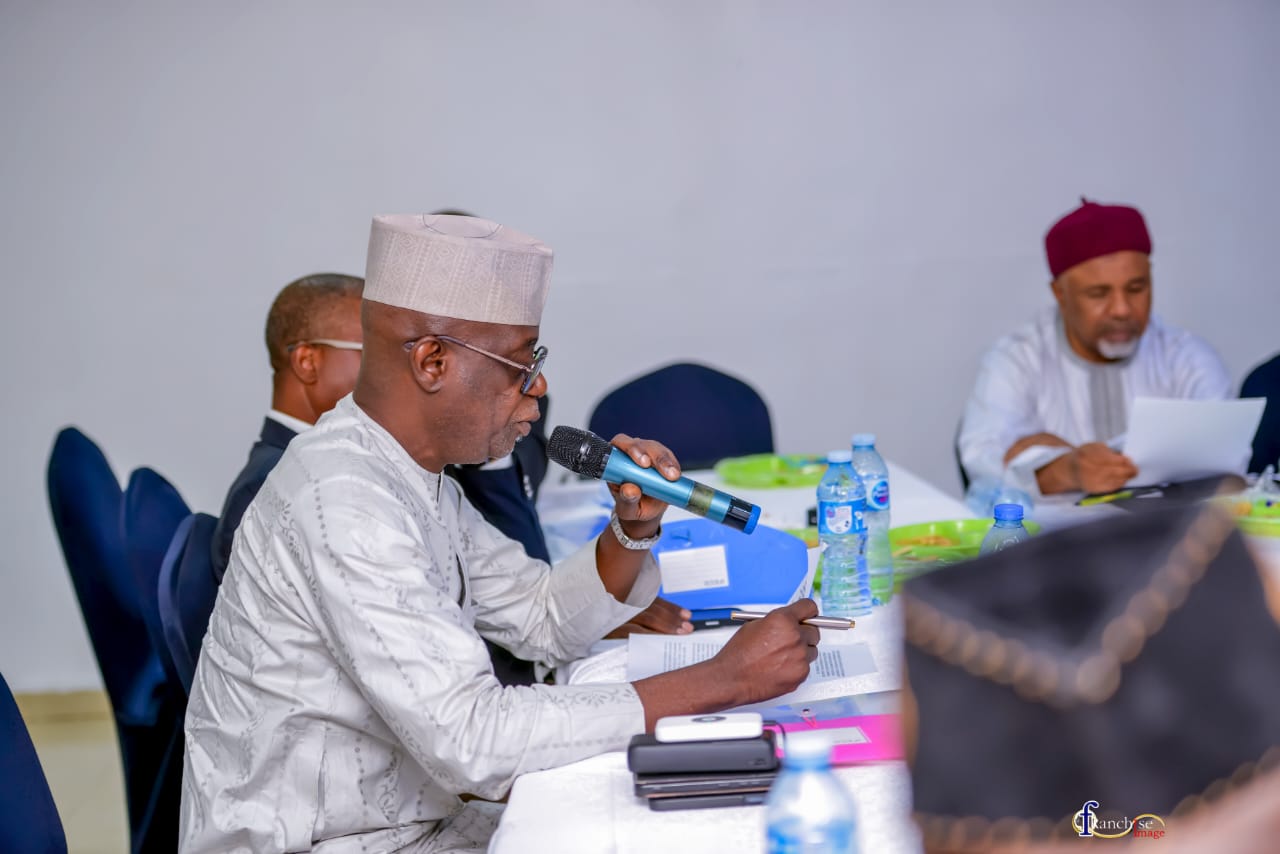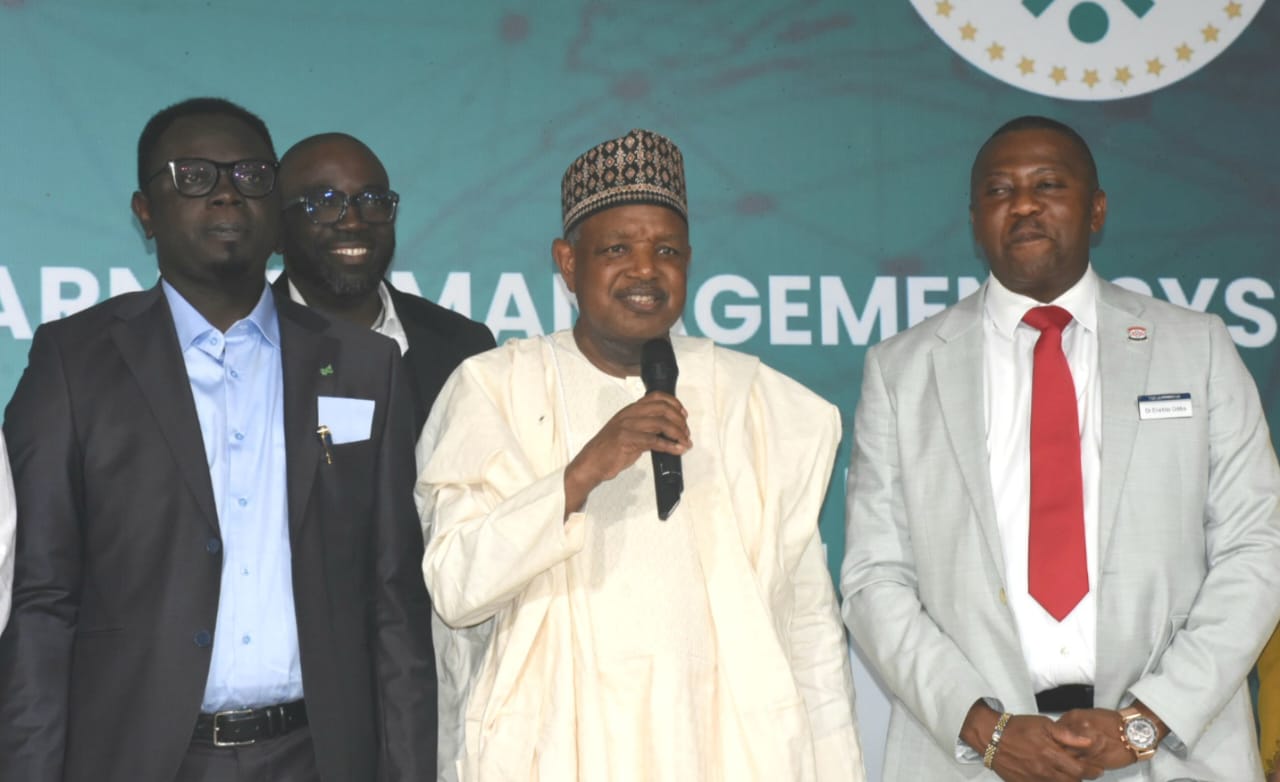Business
RMAFC Urges Shift Towards Economic iversification

By Joel Ajayi
Rising from a strategic retreat organized for members of its Mobilisation and Diversification Committee (M&DC), the Revenue Mobilisation Allocation and Fiscal Commission (RMAFC) has emphasized the urgent need for all tiers of government to pursue transformative economic diversification in response to current economic realities.
This was contained in a statement issued on Tuesday in Abuja by the Head of the Commission’s Information and Public Relations Unit, Maryam Umar Yusuf.
Speaking at the opening ceremony of the retreat themed “Clarifying the Strategic Role of the Mobilisation and Diversification Committee and Leveraging Diversification Mandate to Drive Nigeria’s Economic Transformation”, the Chairman of the Commission, Dr. Muhammed Bello Shehu, OFR, highlighted the purpose of the retreat. Held at the Jade Room, Metropolitan Hotel, Calabar, Cross River State, from Thursday, September 11th to Saturday, September 13th, 2025, the retreat aimed to assess existing revenue mobilisation frameworks, explore innovative avenues for economic diversification, strengthen collaboration with subnational governments and relevant stakeholders, and develop actionable policy recommendations.
Dr. Shehu, who was represented by the Federal Commissioner representing Kwara State, Honourable Ismail Mohammed Agaka, stated:
“Nigeria’s fiscal trajectory is at a crossroads. While the Federal Government continues to face growing expenditure needs, Internally Generated Revenue (IGR) remains insufficient across most states. The time has come for all stakeholders to adopt a deliberate and data-driven approach to revenue mobilisation and economic diversification.”
Also speaking, the Chairman of the Mobilisation and Diversification Committee and Federal Commissioner representing Edo State, Honourable Victor Eboigbe, said the retreat was convened to critically examine issues affecting the committee’s performance and deliberate on innovative, actionable strategies to achieve realistic economic diversification across all levels of government.
At the conclusion of the retreat, the Committee issued a communiqué outlining several key recommendations:
That economic diversification efforts by governments at all levels should be adopted as one of the proxies in the revenue allocation formula.
That subnational governments should be sensitized through collaboration with the six regional development commissions to organize zonal advocacy initiatives.
That the Commission should develop a National Policy Document on Economic Diversification, taking into account the economic potential and unique circumstances of the three tiers of government.
That the M&DC should collaborate with all relevant stakeholders to gather critical data and insights needed to effectively execute its mandate.
That Public-Private Partnerships (PPP) should be strengthened to foster collaboration among federal, state, and local governments in order to boost investment and stimulate economic growth.
The communiqué further recommended organizing zonal advocacy programs to enhance revenue generation by integrating the informal sector into the tax net, leveraging the banking and financial sectors.
Additionally, the Committee emphasized that governments at all levels should initiate and prioritize projects with high revenue potential and job creation capacity. It also called for the continuation of infrastructural development projects initiated by previous administrations.
To ensure continuity and adaptability, the Committee recommended rebranding and reorganizing past economic diversification programs of the Commission to align them with present-day economic realities.
Business
FG, Investonaire Academy Unveil National Programme to Equip 100,000 Youths with Financial Skills, Digital Wealth Tools

By Joel Ajayi
The Federal Government, in collaboration with Investonaire Academy, has unveiled a nationwide financial literacy and wealth-building programme targeting more than 100,000 young Nigerians. The initiative is designed to equip participants with practical skills in budgeting, saving, investing, asset building, and long-term financial planning, positioning them for sustainable prosperity in a rapidly evolving economy.
Launched on Tuesday in Abuja, the Honourable Minister of Youth Development, Comrade Ayodele Olawande, described financial literacy as a necessary survival tool for young people confronting today’s economic realities.
He noted that the initiative represents the foundation of a broader vision expected to extend beyond Nigeria to other African nations and global markets.
Reaffirming the Federal Government’s commitment to supporting over 4,000 corps members annually, the Minister said the programme will provide platforms, resources, and skills needed for both job creation and employability.
“The young people who understand money — how to save, invest, build assets, and manage risk — are the ones who will lead Nigeria into prosperity,” he said.
A major highlight of the launch was the expansion of the Nigeria Youth Academy, a digital platform offering mentorship, training, and startup support. According to the Minister, more than 200 startups will receive empowerment through the Academy’s e-app platform before the end of the year.
He stressed the need for deeper collaboration with private organisations, innovators, and youth-focused groups, noting that government alone cannot drive youth development. He further encouraged young Nigerians to embrace skills acquisition, innovation, and digital enterprise, saying these remain critical to reducing the desire for migration and increasing self-reliance.
Outlining the Ministry’s long-term commitments, Olawande emphasized three priorities: supporting youth innovation, equipping them with growth tools, and safeguarding millions of Nigerian youths under the Ministry’s mandate.
Speaking at the launch, Sebastien Sicre, Chief Operating Officer of Investonaire Academy, said the programme was crafted to revolutionize the way Nigerian youths learn and apply financial knowledge. He highlighted the Academy’s gamified Learning Management System (LMS), which offers interactive learning tools, community forums, and real-time mentorship to make financial education engaging and accessible.
Complementing the digital platform is a new 200-square-metre physical training centre in Abuja, opposite the NNPC Towers, where in-person workshops and mentorship sessions will take place.
The curriculum covers key global asset classes — including equities, commodities, forex, and indices — ensuring participants gain a broad understanding of financial markets.
Sicre added that with Federal Government backing, the programme seeks to unlock new opportunities, strengthen youth participation in the digital economy, and reward outstanding participants through a $1 million funding pool to support new and existing ventures.
International Programme Director of Investonaire Academy, Dr. Enefola Odiba, explained that the initiative aims to bridge long-standing gaps in financial education among Nigerian youths. While schools teach many subjects, he said, essential financial skills are often missing.
“Many people can earn money — earning money can be easy. The real challenge is retaining, managing, and growing that money,” he noted.
Referencing the Central Bank of Nigeria’s definition of financial literacy, Odiba stated that implementation remains a major national challenge. He said the initiative brings together government agencies, youth groups, academic institutions, and private-sector partners to translate strategy into measurable impact.
The programme’s curriculum covers budgeting, saving, investing, and financial planning — areas where many young people struggle. By offering practical training, real-world insights, and guided mentorship, the initiative aims to build a generation of financially empowered youth capable of driving innovation, entrepreneurship, and sustainable economic growth.
With this partnership, the Federal Government and Investonaire Academy share a common goal: to empower young Nigerians with the financial intelligence and digital tools needed to build wealth, grow businesses, and transform the nation’s economic future.
-

 Featured6 years ago
Featured6 years agoLampard Names New Chelsea Manager
-

 Featured6 years ago
Featured6 years agoFG To Extends Lockdown In FCT, Lagos Ogun states For 7days
-

 Featured6 years ago
Featured6 years agoChildren Custody: Court Adjourns Mike Ezuruonye, Wife’s Case To April 7
-

 Featured6 years ago
Featured6 years agoNYSC Dismisses Report Of DG’s Plan To Islamize Benue Orientation Camp
-

 Featured4 years ago
Featured4 years agoTransfer Saga: How Mikel Obi Refused to compensate me After I Linked Him Worth $4m Deal In Kuwait SC – Okafor
-
Sports3 years ago
TINUBU LAMBAST DELE MOMODU
-

 News11 months ago
News11 months agoZulu to Super Eagles B team, President Tinubu is happy with you
-
Featured6 years ago
Board urges FG to establish one-stop rehabilitation centres in 6 geopolitical zones
